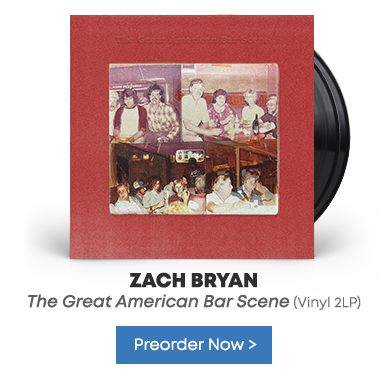Robbie Fulks remains one of the savviest country-folk artists extant. For better or worse, the singer-songwriter is also one of the most underappreciated. In a career that spans more than three decades, Fulks has made a dozen solo records, penned music-related pieces for a variety of outlets, continuously toured, hosted a program for XM radio, served as an accompanist for the likes of Dr. John, and further maintained contemporary relevance by delivering songs spiked with soulfulness, wit, and unerring detail. Fulks released the excellent Upland Stories on Bloodshot Records in April and recently spoke with Music Direct about its inspiration, the recording process, and what he still hopes to accomplish.
You once said you were satisfied with how 2013's Gone Away Backward was received. How do you feel about the reception of Upland Stories?
I think people got it. I'm always ready to sell another 250,000 copies.
How did spending time in the Upland South inspire you?
All the ways are old because the bulk of time I spent there was when I was between seven and 17 years old. So the inspiration is the usual sort of unwittingly self-mythologized memory that I suspect any older person has about his formative times. In this case, it's mixed with the common pool of artistic work about that area – the music and books. Fiddles, banjos, the black church, rivers, mountains, loneliness, hot weather, Christianity.
Steve Albini has engineered several of your records. What leads you to keep working with him?
Besides being gracious, smart, accommodating, and efficiency-focused, Steve has a clear taste in how music should be presented that I can by now anticipate and work well with. He likes things un-prettified and mixed with a minimum of apparent effort. Two or, at most, four hands on the faders, his and mine, feeling out moves as the tape goes by, as they did in all those great-sounding records from before the early 1960s.
You told the Austin Chronicle that at this point in your career you can play with anyone you want. What musicians would you like to work with – and with which you haven't yet collaborated?
Ha, two names leap right to mind: Paul Franklin and Brian Blade. Thinking a few seconds longer: Rudy Royston, Jim Keltner, Chris Wood, Don Byron, Tim O'Brien. Those are all guys that are broadly experienced in supporting and enhancing other people in a big range of styles. Then there are people that don't really do that, who stick to one personal specific thing, and a few of them might be on my list too, just because I admire them a lot – say, Joey Spampinato, Annette Peacock, Anita Wilson.
You recently declared your love for Cheap Trick and wrote on your blog: "I'm no expert on rock music. I don't even really like most of it all that much, though I guess I could say the same about country." Can you elaborate on that last statement?
I find that I like about five percent of almost every music style, although the kind I'm known for – country, bluegrass, folk – seems to be the kind that speaks to my DNA the loudest!
What draws you to book continuous residencies at [Chicago club] the Hideout, and what's the best part about such consistency?
I've been doing a Monday residency since 2010. It ends in a couple months. The best thing about it is having a friendly place to experiment and try things out in front of a patient audience.
Looking back at the past, what is your proudest moment?
Hm. Playing on the Opry I guess. I was on there four or five times in the mid-aughts.
Looking ahead, what goals do you still hope to accomplish?
Making music for plays and movies, raising my guarantees and selling more records, playing with musicians with interesting and divergent minds.
Photo credit: Andy Goodwin
30th Aug 2016




































